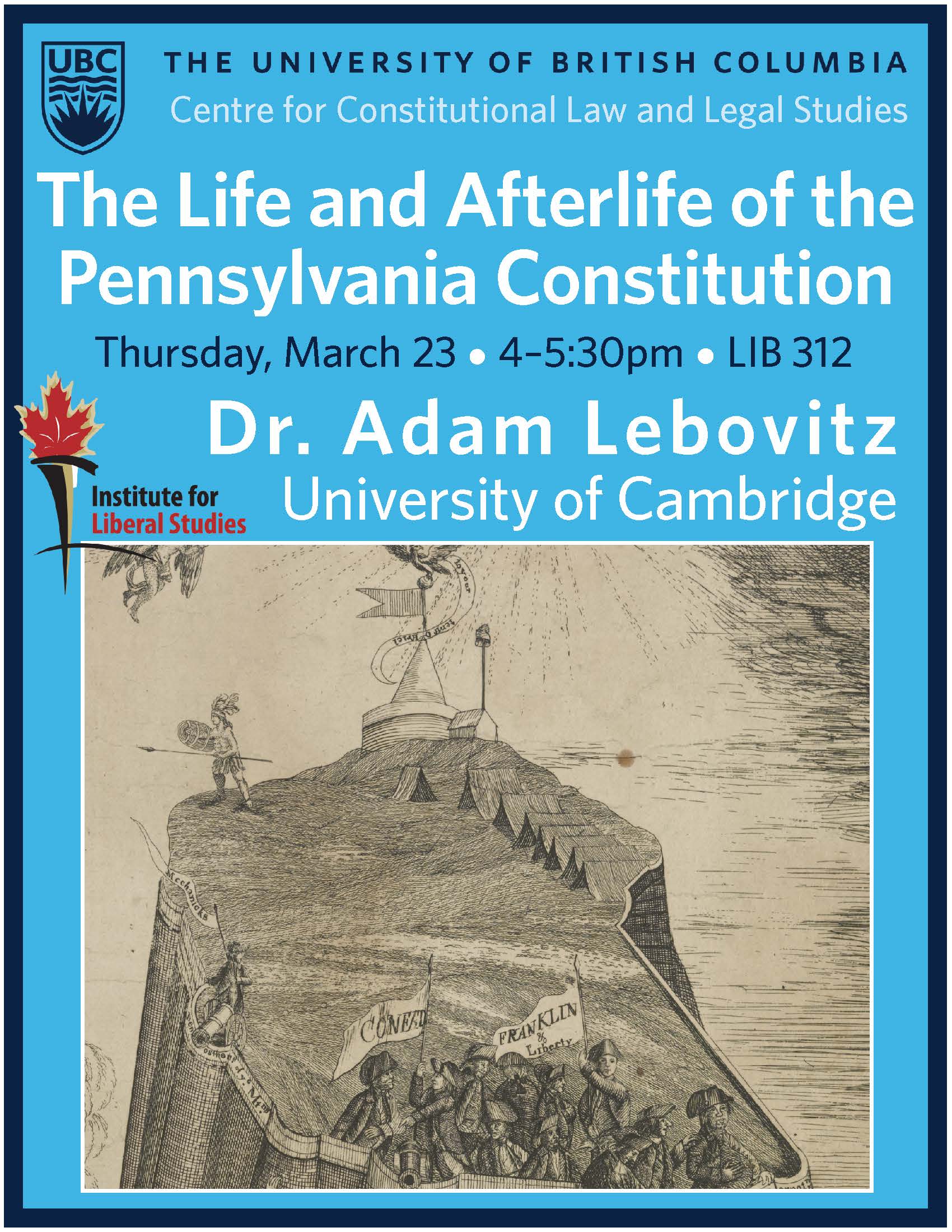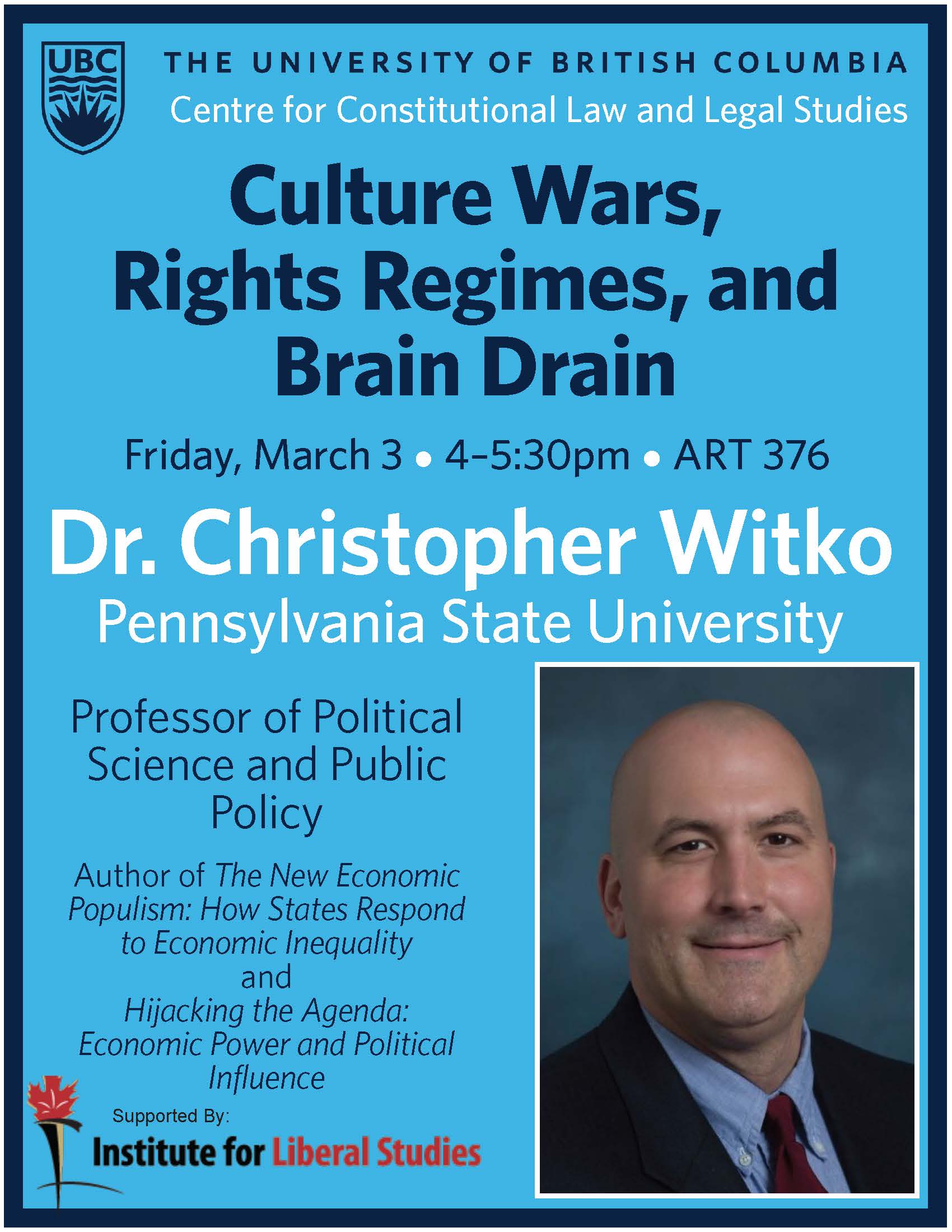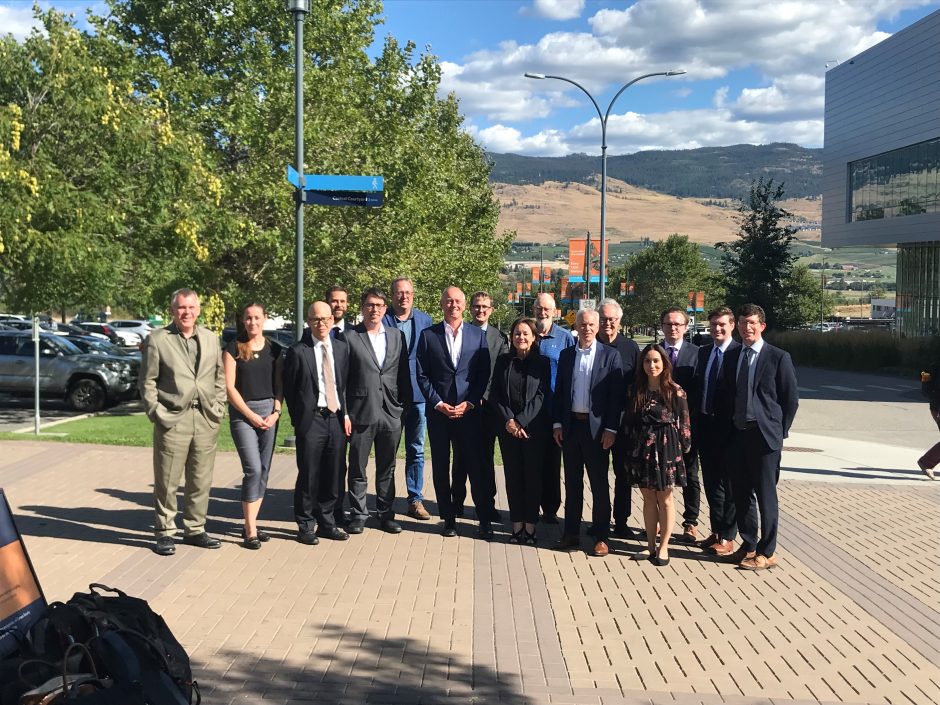
Upcoming Events
2023/03/23
Visiting Speaker: In co-ordination with the Institute for Liberal Studies and the Department of Economics, Philosophy, and Political Science, the Centre for Constitutional Law is pleased to host Dr. Adam Lebovitz‘s presentation on:
“The Life and Afterlife of the Pennsylvania Constitution”
March 23 2023. The presentation will take place from 4:00-5:30pm in LIB 312.
Abstract: From its first appearance, the Pennsylvania Constitution of 1776 was recognized as a monument of popular government. Inspired in part by the political ideas of Thomas Paine, its broad franchise, weak executive, and powerful unicameral legislature exemplified the populist spirit that gripped America in the first years of the War for Independence. It found imitators and admirers across the thirteen colonies, and was celebrated in the European press. But it also proved enormously controversial. Benjamin Rush called it a charter of “mobocracy”; William Hooper called it “a Beast without a head.” This lecture tracks the curious fate of this constitution, both in America, where it became a symbol of populism run amok, and in France, where it served as a controversial blueprint for the three constitutions written between 1791 and 1795. Its tangled career exemplifies the transatlantic character of constitution-making in the revolutionary era.
Bio: Dr. Adam Lebovitz is the WYNG Research Fellow in Political Theory and Philosophy at Trinity Hall, Cambridge. He received his PhD from Harvard University in 2018 and his JD from Harvard Law School (magna cum laude) in 2012. Dr. Lebovitz specializes in the history of political thought and is working on two book projects. His first book, Colossus: Constitutional theory in America and France, 1776-1799 (under contract, Harvard University Press), explores transatlantic connections between the American and French revolutions, and reinterprets the political thought of John Adams, Abbé Sieyès, the Marquis de Condorcet, and other signature writers of the two revolutions. An earlier version of this manuscript received the Leo Strauss Award for the best dissertation in political philosophy by the American Political Science Association, as well as the Robert Noxon Toppan Prize for the best dissertation on a subject of political science at Harvard University. His second book, A Diary of the Terror by Thomas Paine (under contract, Harvard University Press), is a critical edition of an unknown manuscript, likely by Thomas Paine, on the Reign of Terror in France. He found the manuscript in the French National Archives in 2017, while performing doctoral research in Paris.

Past Events
2023/02/03
Visiting Speaker: In co-ordination with the Institute for Liberal Studies and the Department of Economics, Philosophy, and Political Science, the Centre for Constitutional Law was pleased to host Prof. Christopher Witko‘s presentation on:
“Culture Wars, Rights Regimes, and Brain Drain“
March 3 2023. The presentation took place from 4:00-5:30pm in ARTS 376.
Abstract: As part of the “culture war” taking place in U.S. politics many states are enacting laws that restrict rights and liberties in areas like reproductive health and free speech for educators. Scholars like Buchanan have argued that federalism preserves liberty by allowing easy exit from states that restrict liberties. Do people actually ”vote with their feet” and move away from states that are restricting liberties in this manner? We doubt very many people do, but expect that individuals with high levels of education will be most sensitive to these rights restrictions and most likely to move. We examine this argument using a nationally representative conjoint survey experiment and U.S. Census Bureau survey data covering a sample of tens of millions of individuals over a 20-year time period.
Bio: Christopher Witko is a professor of public policy and political science at Penn State. Witko’s research examines how the public, organized interests and governments both shape and respond to economic outcomes, like economic inequality, financialization and technological development. His book, The New Economic Populism: How States Respond to Economic Inequality, coauthored with William W. Franko, won the APSA State Politics and Policy Section’s Virginia Gray best book award in 2018. His most recent coauthored book, Hijacking the Agenda: Economic Power and Political Influence, won the American Political Science Association’s Gladys M. Kammerer Award for best book on U.S. national policy.

2022/12/06
Visiting Speaker: In co-ordination with the UBC Okanagan School of Education, the Department of Economics, Philosophy, and Political Science, the Centre for Constitutional Law was pleased to host Prof. Philip Cook‘s presentation on:
“Common Schools for Civic Equals: On the Goods of Common Schooling“
Dec. 6 2022. The presentation took place from 3:00-4:30pm in EME1121.
2022/09/08
Constitutional Lecture: To mark both the 2022 founding of the Centre for Constitutional Law and Legal Studies and the 40th Anniversary of the creation of the Canadian Charter of Rights and Freedoms, the Centre hosted its inaugural 2022 public lecture by Justice Suzanne Côté of the Supreme Court of Canada on Sept. 8 2022:
“The Charter at 40: Landmark Cases in Four Decades of Supreme Court Jurisprudence”
Constitutional Workshop: The public lecture was accompanied by the Centre for Constitutional Law’s first Constitutional Workshop on Sept. 8-9 2022.
“Charter Theories: Institutions and Interpretations”

Workshop Participants included:
Justice Suzanne Côté (Supreme Court of Canada)
Mr. Peter Gall (Gall-Legge-Grant-Zwack-LLP)
Justice Grant Huscroft (Ontario Court of Appeal)
Prof. Andrew Irvine (UBC)
Prof. Gerard Kennedy (University of Manitoba)
Mr. Kris Kinsinger (Runnymede Society)
Prof. Hoi Kong (UBC Allard)
Malcolm Lavoie (UofA)
Prof. Blair Major (Thompson Rivers University)
Justice Bradley Miller (Ontario Court of Appeal)
Prof. Dwight Newman (University of Saskatchewan)
Prof. Emmanuelle Richez (Windsor)
Prof. Roger Shiner (UBC)
Prof. Geoffrey Sigalet (UBC)
Prof. Grégoire Webber (Queen’s University)
Mr. Benjamin Woodfinden (McGill University)